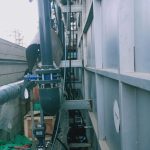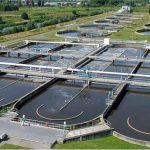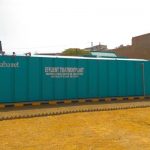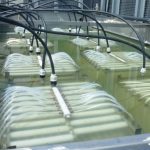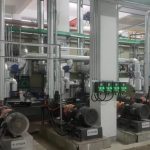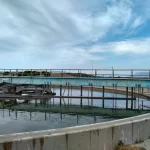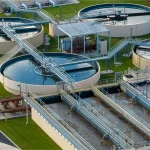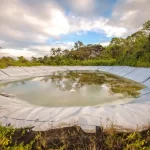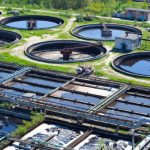-
-
Call for inquiry
-
B-21, Block-2, Gulshan-e-Iqbal
Karachi, Pakistan

Empowering a Sustainable Future Through Water Recycling and Wastewater Treatment Solutions
Introduction
Water is life — and sustainability begins with how we use it. Across Pakistan, industries and communities rely heavily on freshwater, placing enormous pressure on limited natural reserves. At Abamet Pakistan, we are committed to reversing this trend through innovative water and wastewater treatment solutions that promote reuse, recycling, and responsible water management.
Our mission is simple yet vital: to reduce freshwater consumption, protect the environment, and build a circular water economy where every drop counts. By enabling industries to recycle wastewater efficiently, we are helping pave the way toward a greener and more resilient Pakistan.
Why Water Recycling Matters
- Conserving Freshwater Resources
Pakistan ranks among the world’s most water-stressed countries. Recycling industrial wastewater reduces dependency on freshwater, preserving it for agriculture, households, and ecosystems. - Reducing Environmental Pollution
Untreated industrial discharge contaminates rivers and soil. Advanced wastewater treatment systems remove harmful pollutants, ensuring cleaner water bodies and healthier communities. - Cost-Effective Sustainability
Recycling plants not only protect the environment but also cut operational costs by reusing water in cooling, washing, or process operations — a win for both business and nature. - Climate Change Mitigation
Efficient water management helps industries lower their carbon footprint, contributing to Pakistan’s climate action goals. - Supporting Industrial Growth Responsibly
With sustainable water reuse systems, industries can expand production without increasing environmental pressure — aligning with global ESG and sustainability standards.
Technologies Driving Change
- MBBR (Moving Bed Biofilm Reactor):
A compact and energy-efficient biological system ideal for industrial wastewater treatment with low operator involvement. - MBR (Membrane Bioreactor):
Combines membrane filtration and biological treatment for high-quality, reusable water in space-constrained environments. - RO Plants (Reverse Osmosis):
Ensures high-purity water recycling for industrial reuse and process optimization. - Zero Liquid Discharge Systems:
Advanced systems that recover almost all wastewater, leaving zero environmental discharge. - Constructed Wetlands:
Eco-engineered systems using natural vegetation to polish and recycle treated water for landscaping or irrigation.
Success Stories: Turning Vision into Impact
Our partnerships with leading industrial pioneers showcase the real-world benefits of sustainable water management:
- Rajby Industries – Recycling 300,000 gallons per day (GPD) of wastewater through Abamet’s advanced treatment system — equivalent to 108 million gallons per year. This initiative drastically reduces freshwater dependency while demonstrating corporate environmental leadership.
- AGTL (Al-Ghazi Tractors Ltd.) – Implementing industrial reuse systems that minimize effluent discharge and promote water conservation in manufacturing.
- Liberty Group – Adopting recycling and reuse technologies to reduce operational water footprints and strengthen environmental compliance.
These projects prove that sustainability and productivity can coexist — driving industrial growth without compromising the planet’s future.
Water Recycling and the Sustainable Development Goals (SDGs)
Our initiatives directly contribute to multiple UN Sustainable Development Goals (SDGs):
- SDG 3: Good Health and Well-being
- SDG 6: Clean Water and Sanitation
- SDG 7: Affordable and Clean Energy
- SDG 9: Industry, Innovation, and Infrastructure
- SDG 11: Sustainable Cities and Communities
- SDG 14: Life Below Water
- SDG 15: Life on Land
Each step toward cleaner water brings us closer to achieving Pakistan’s sustainability commitments.
The Future of Sustainable Water Management
Looking ahead, Abamet continues to innovate and expand the scope of water recycling, reclamation, and reuse across Pakistan. Our focus areas include:
- Smart Water Monitoring: Using IoT-based systems for real-time performance tracking.
- Decentralized Recycling Plants: Compact units for factories, housing societies, and commercial complexes.
- Green Landscaping Initiatives: Reusing treated wastewater for urban horticulture and plantation.
- Collaborative Partnerships: Engaging industries and communities to strengthen Pakistan’s water resilience.
Conclusion
Water recycling is not just an environmental need — it’s a national priority. By recovering and reusing wastewater, industries can reduce freshwater stress, lower pollution, and foster long-term sustainability. Through projects with Rajby Industries, AGTL, Liberty, and many others, Abamet Pakistan is proving that innovation and responsibility can go hand in hand. Together, we can empower a sustainable future, one recycled drop at a time.

